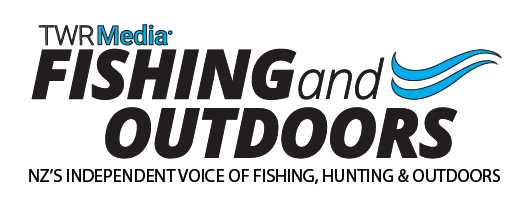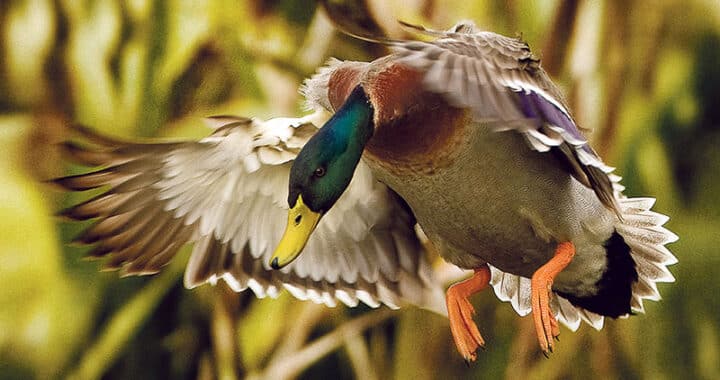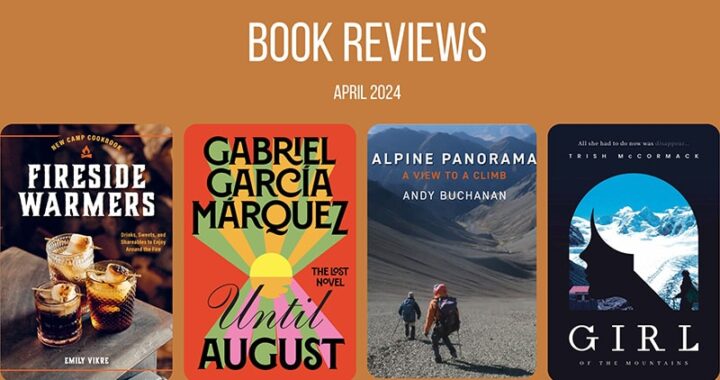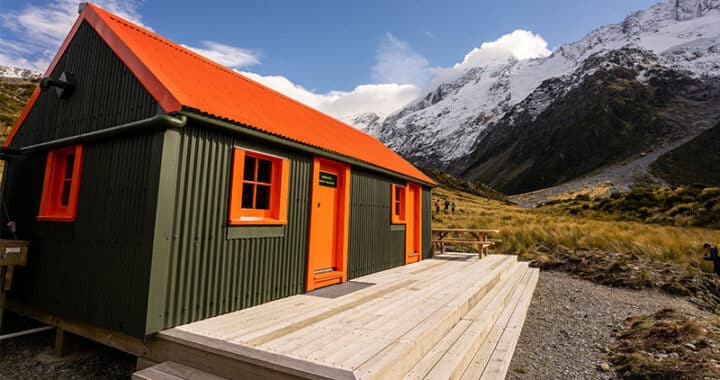WithWild: conservation meets culinary treat
5 min read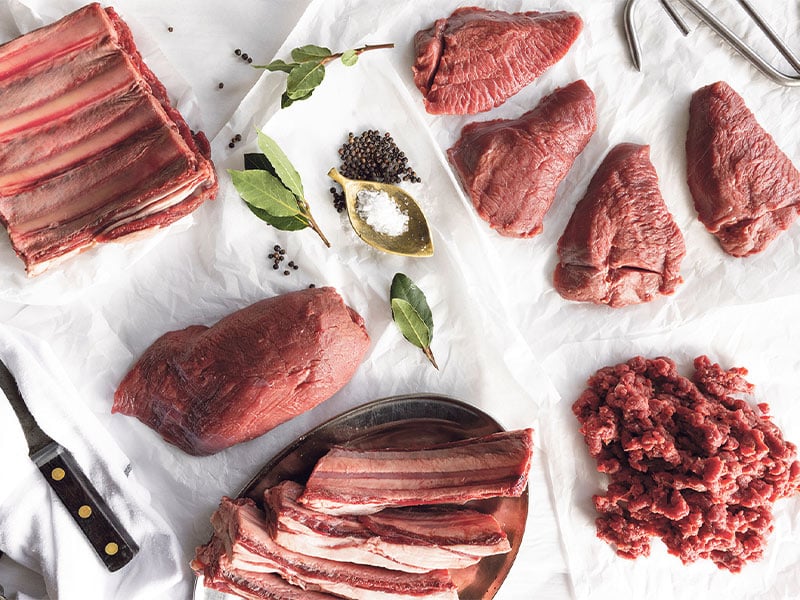
Innovative organisation WithWild is ticking boxes in the conservation, sustainability, and culinary spaces, acknowledging that the introduced wapiti found in the Fiordland National Park is a valuable food source.
The organisation was founded in 2020 after the Fiordland Wapiti Foundation (FWF) contacted WithWild co-founder Scott McNeil with an interesting proposition.
“FWF wanted to know if I had the capacity to distribute the wapiti meat that was being left behind as a result of the selective control programme they run in the Fiordland National Park, through my company Awatoru Wildfood,” Scott says.
Wapiti, or North American elk, were introduced to New Zealand from their native North America in 1905 when 18 of the animals were released at the head of the George Sound.
In 1993, a group of hunters formed the FWF to reduce the impacts the animals were having in what has become known as the ‘Wapiti Zone’ – an area of 175,000-hectare within the two million hectare Fiordland National Park, a World Heritage area, and to manage the herd for recreational benefits.
A major aim of the foundation is to control the deer population in the sensitive alpine environment to protect browse-sensitive indigenous species.
As part of a community agreement between the Department of Conservation (DOC) and FWF, each year, a selective control programme is undertaken to maintain the deer population below established ecological threshold levels. The estimated deer population in that area is 4500, with the selective control programme removing 1000 hybrid wapiti animals annually.
Collaborative conservation
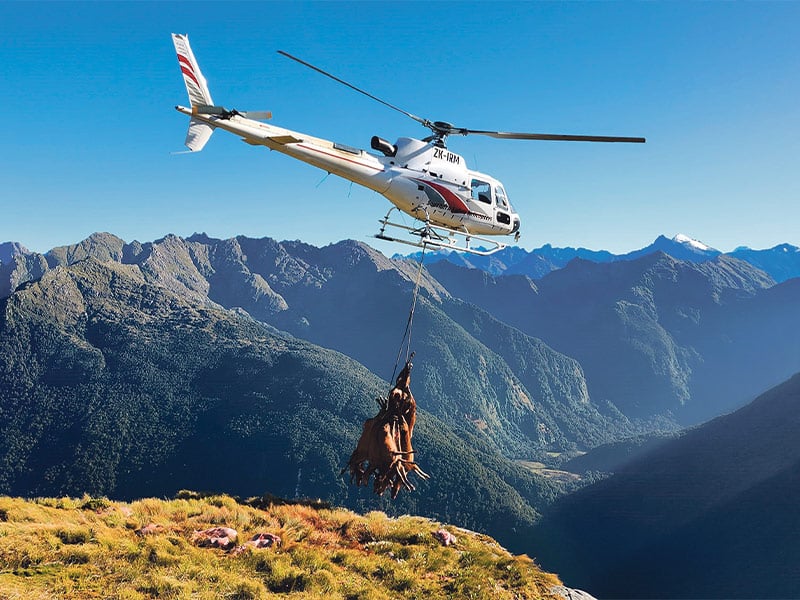
Scott says when he got the call during the first COVID lockdown, he was hesitant.
“There was a lot of uncertainty at that time, and I thought it might be too big a project for myself,” he says. “So, I contacted chef Dariush Lolaiy, who introduced me to Nick Loosley from Everybody Eats, a charity that turns good surplus food into restaurant quality meals, as we initially thought it might be a charity situation.
“But once we got on the Zoom calls, we could see there was a much broader picture, and it evolved into us thinking we had the opportunity to utilise this product. It was an area that we were all interested in, and we all had specialities within the programme.”
WithWild was born with the intention of honouring the free-roaming wapiti animals by acknowledging them as a valuable food resource. It was co-founded by Scott, Dariush Lolaiy (a multi-award-winning chef, cookbook author, hunter, and restauranteur), Tom Hishon (award-winning chef, food innovator, and restauranteur), Nick Loosely (founder of award-winning charity Everybody Eats and owner of restaurants using premium and wild products), and Donald Shepherd (co-founder of Citizen dedicated to rescuing and upcycling edible food waste).
Scott says the founders were all equally drawn to the project.
“It is such a direct, short-chain conservation effort. It appeals to anyone who is interested in conservation. While managing and utilising these wapiti is not the be-all and end-all of conservation efforts, it is
a great tool – a great part of conservation that we want to expand on.
“We are not here to eradicate the wapiti population; rather, it’s about population management as part of conservation efforts to protect our native flora, fauna, and ecosystems.
“The philosophy of WithWild is heavily based around utilisation. Currently, people don’t see the full value of the animals that need population control in the wild. It makes sense to make use of these.”
Rethinking food waste
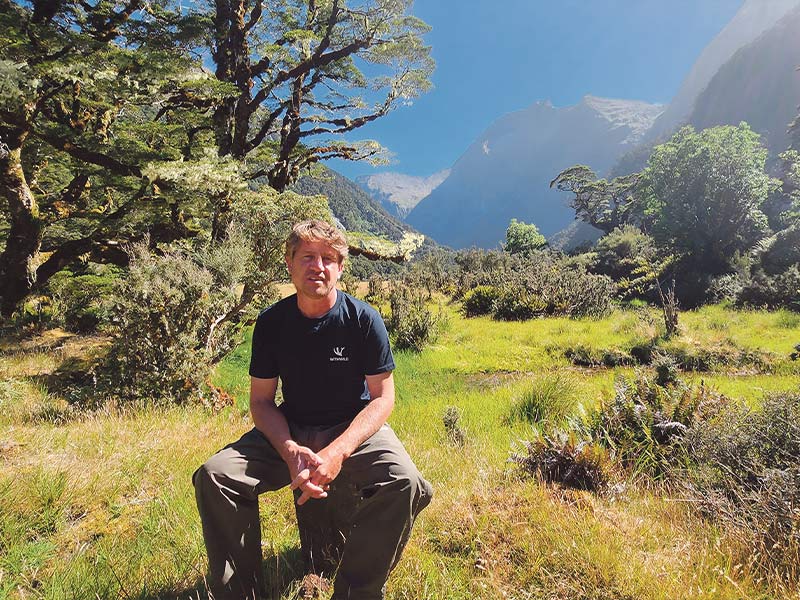
With the programme now established, WithWild takes the majority of the wapiti meat from the selective control programme and distributes it to a variety of hospitality outlets, from cafés to fine dining establishments, via Awatoru Wildfoods. Based on the Kapiti Coast, Awatoru – owned by Scott and Maaike McNeil – sources and supplies the hospitality and restaurant trade with wild, seasonal proteins, including wapiti, red deer, fish (that Scott catches himself), truffles, and honey from all over New Zealand.
In 2022, a partnership with Burger Fuel was formed and they launched a limited-time-only Wild Heart Wapiti burger.
Through this collaboration, a total of $30,000 ($1 per burger) was raised for the FWF to enhance its predator control work in the Nitz Valley. Fifty DC200 traps were funded and installed to help protect the native bird population, including kiwi, kea, whio, weka, and kaka.
“With Wild Heart Wapiti burgers back on the menu for a limited time in 2023, it looks as though this will be an ongoing relationship,” Scott says.
WithWild wapiti has also been featured in My Food Bag, Farro Fresh New Zealand, and in best-selling wapiti pies made by both Cazador and Daily Bread.
“We are also looking at creating shelf-stable, longer-life meals that appeal to hunters,” Scott says. “So many people see deer as a huge food source; they are a staple in rural communities, for sure. We want people to see these products as a staple – they are there, and they should be eaten.
“We can speak to the purity of the meat; the lack of inputs compared to farmed meat is extraordinary.”
Future expansion
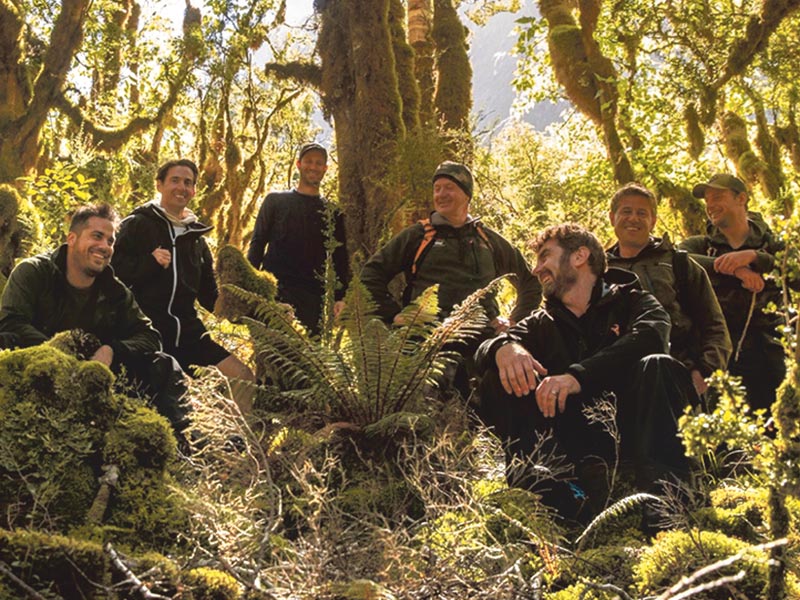
The vision for the future of WithWild is, for the Wapiti at least, the total utilisation of not just the meat that is left behind, but also many other products sourced from the animal’s carcass.
“We are forming relationships with other groups such as Tahr and the Sika Foundation, but at the moment, it is just one step at a time,” Scott says.
“WithWild is pioneering the commercialisation of critical partnerships that enable privately funded conservation by applying new thinking about how we use nature’s scarce and valuable resources.
“Long-term partnerships are key to the success of this programme,” he says. “WithWild will always take the deer, regardless of the market for it, and our wapiti recovery team, Southern Lakes Helicopters, is a key part of that exercise.
“To have the ability to take groups into the region to see the selective control programme and recovery take place is a selling point that is second to none. We took a group of six chefs into the Nitz Valley recently via boat and helicopter.
“I could go into a million restaurants and say how delicious this incredible lean, free-range meat is but taking them in to see what goes on behind the scenes sells itself.
“Our aim is to protect environments like Fiordland National Park for future generations, but it’s not easy. To do this, we are taking wapiti to the world. WithWild plans to engage as many people as we can to experience nature’s bounty in new ways with the very best wild cuisine.”
Wapiti recipe
Cook wapiti at home with ease. Chefs Tom Hishon and Dariush Lolaiy share two of their delicious recipes.
Words by Anne Boswell, images supplied
